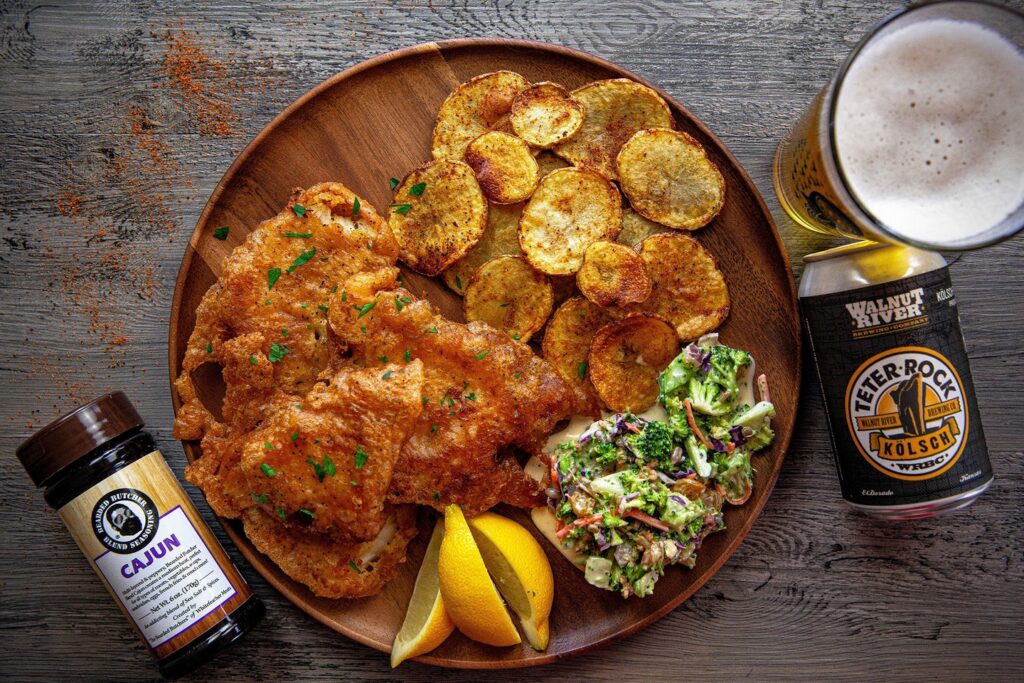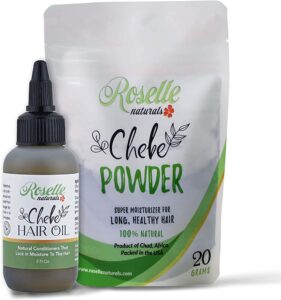Deep fryer oil should be carefully chosen and regularly replaced for optimal health and taste. The quality and freshness of the oil directly affect the flavor and overall appeal of the fried food.
Deep frying has been a popular cooking technique for centuries, allowing for crispy and tender results in a variety of foods. However, the key to successful deep frying lies in the quality and management of the frying oil. The oil must be able to withstand high temperatures without breaking down or smoking, which can result in an unpleasant taste and create potentially harmful compounds.
Additionally, regular replacement of the oil is crucial to avoid buildup of contaminants and maintain freshness. By carefully choosing and managing your deep fryer oil, you can ensure a delicious and healthy fried dish every time.

Credit: www.therestaurantstore.com
Making The Most Of Your Deep Fryer Oil
Deep Fryer Oil: Making The Most Of Your Oil
If you love fried food, then owning a deep fryer can be a game-changer. Whether you’re frying a turkey for thanksgiving or making your favorite fried chicken recipe, knowing how to make the most of your deep fryer oil will help ensure your dishes come out perfectly every time.
Read on to learn more about choosing the right oil for your deep fryer, understanding smoke points, and maximizing your oil’s longevity.
Choosing The Right Oil For Your Deep Fryer
When choosing an oil for your deep fryer, you want to select an oil with a high smoke point. This is the temperature at which the oil begins to smoke and burn, which can negatively affect the taste and nutritional value of the food you’re cooking.
Some great options for deep frying include:
- Canola oil: With a smoke point of around 400°f, canola oil is a popular choice for deep fried recipes.
- Peanut oil: This oil has a high smoke point of around 450°f and is commonly used in southern cooking.
- Vegetable oil: Most vegetable oils have a smoke point of around 400-450°f, making them a practical choice for frying.
- Avocado oil: With a smoke point of 520°f, avocado oil is one of the most heat-resistant oils to use in your deep fryer.
Understanding Smoke Points And Why They Matter
As mentioned earlier, smoke points are an important factor to consider when choosing your deep fryer oil. When an oil exceeds its smoke point, it can produce harmful chemicals and impart a burnt taste to your food. Understanding smoke points can help you avoid these issues and ensure that your food comes out tasting great.
Here are a few things to keep in mind:
- Different oils have different smoke points: Be sure to check the smoke point for any oil you’re using in your deep fryer.
- Don’t reuse oil too many times: Each time you reuse oil, its smoke point decreases slightly. As a result, you’ll want to make sure you’re not using oil that’s been reused too many times.
- Keep an eye on the temperature: Make sure your oil doesn’t exceed its smoke point by monitoring the temperature while you’re frying.
Maximizing Your Oil’S Longevity
Since deep fryer oil can be expensive, it’s important to take steps to maximize its longevity. Here are a few tips to help you get the most out of your oil:
- Use a deep fryer with a good filtration system: This can help remove food particles and extend your oil’s lifespan.
- Don’t mix oils: Mixing oils with different smoke points can cause your oil to break down more quickly.
- Store your oil properly: Store your used oil in a cool, dark place to help extend its shelf life.
- Use a thermometer: Make sure your oil is at the correct temperature before frying to help prevent breakdown.
Deep Fryer Oil Maintenance
Cooking oil is an essential ingredient in any commercial kitchen that uses fryers extensively. Deep-frying requires high temperatures, and this creates challenges in maintaining the oil quality over time. In this blogging post, we’ll cover critical maintenance practices for deep fryer oils to ensure they deliver high-quality, consistent results and lasts longer.
Proper Oil Storage Techniques
Proper oil storage practices are essential in maintaining deep fryer oil quality. Here are some tips:
- Store the oil in a clean, dry, and sealed container to protect it from oxygen, moisture, and contaminants.
- Label the container with the date the oil was first used, and never use oil beyond the recommended usage time.
- Keep the oil away from direct sunlight and heat sources, which can accelerate spoilage.
- Avoid storing different types of oils together, as this can alter the quality of the oils and affect the flavor of the food.
Filtering Your Oil Effectively
Filtration is a crucial step in maintaining deep fryer oil quality. Inefficient filtration can lead to the buildup of dirt, debris, and sediment, which can cause the oil to deteriorate quickly. Here are some tips on effective oil filtration:
- Filter the oil at least once a day, depending on your fryer’s usage rate and amount of food debris.
- Use a high-quality filter that captures small particles and impurities.
- Always filter the oil while it’s still hot, as this allows the sediments to remain in liquid form and be removed easily.
- Regularly clean the filter to maintain peak performance.
Best Methods For Disposing Of Used Oil
Disposing of used cooking oil can be hazardous to the environment if not done correctly. Improper disposal can also lead to costly clogs and damage to sewage systems. Here are some safe and efficient ways to dispose of used oil:
- Check with local authorities on the proper way to dispose of used oil in your area. In some locations, waste oil can be taken to a certified recycling center.
- Never pour used oil down the drain or into the regular trash. This can cause clogs and damage to plumbing and sewage systems.
- Keep used oil in a separate, labeled container away from heat and flames until it can be collected for proper disposal.
- Consider using an oil collection service that recycles waste oil into biofuels or animal feed.
Maintaining deep fryer oil is critical for delivering high-quality, consistent, and safe food to customers. By following proper storage, filtration, and disposal practices, you can extend the life of the oil, save money on replacement costs, and protect the environment from unnecessary harm.
Expert Tips For Frying With Oil
Deep Fryer Oil: Expert Tips For Frying With Oil
Frying with oil may seem easy enough, but there are tricks to ensuring your food comes out perfectly every time. From selecting the right temperature to preparing your fryer for oil frying, here are some expert tips for frying with oil.
Selecting The Right Temperature For Your Fryer:
- Before frying, make sure to read the manufacturer’s instructions for your fryer.
- The ideal temperature for frying is between 350°f -375°f (175°c -190°c).
- If the oil is not hot enough, your food will be greasy. If the oil is too hot, your food will burn.
- Use a thermometer to measure the oil temperature before adding your food.
Preparing Your Fryer For Oil Frying:
- Make sure your fryer is clean and free from any leftover debris.
- Use the right type of oil for your fryer. Depending on the type of fryer you have, the recommended oil may differ. Examples include vegetable oil, peanut oil, or canola oil.
- Fill your fryer with enough oil to cover your food, but make sure not to fill it past the maximum fill line.
- Never leave your fryer unattended while it’s heating up or in use.
Identifying The Best Foods To Fry In Oil:
- The best foods to fry in oil are those with a high level of fat or moisture since they will not dry out during frying. Examples include chicken, fish, or potatoes.
- Avoid frying foods that are too wet or have a high water content, as the water can cause dangerous oil splatters.
- Never overcrowd your fryer. Cook in small batches to ensure the temperature of the oil stays consistent.
By following these expert tips for frying with oil, you are sure to achieve delicious, crispy results every time. Happy frying!
Avoiding Common Mistakes With Deep Fryer Oil
Deep Fryer Oil: Avoiding Common Mistakes With Deep Fryer Oil
Deep frying is one of the most popular cooking methods around the world, and it’s no secret that deep fryer oil is crucial when it comes to achieving that perfect, crispy texture. However, a few common mistakes can seriously impact the quality of your fried food.
We will discuss the top three mistakes you should avoid when working with deep fryer oil, including adding too much food to the fryer, frying foods at the wrong temperature, and using the wrong cooking utensils.
Adding Too Much Food To The Fryer
Adding too much food to the fryer is one of the most common mistakes people make when cooking fried foods. Not only does this slow down the cooking process, but it can also result in unevenly cooked food. Here are a few tips to avoid adding too much food to the fryer:
- Only add enough food to cover no more than half of the fryer’s capacity.
- Cook in batches if necessary.
- Avoid overcrowding the fryer basket.
Frying Foods At The Wrong Temperature
Frying foods at the wrong temperature is another common mistake that can significantly impact the quality of fried food. Here’s how to avoid this mistake:
- Use a thermometer to check the temperature of the oil regularly.
- Maintain the oil temperature between 325°f and 375°f for optimal results.
- Preheat the oil to the correct temperature before adding food to the fryer.
Using The Wrong Cooking Utensils
Using the wrong cooking utensils can not only affect the quality of the food but also pose a safety hazard. Here are a few tips to ensure you’re using the right utensils:
- Use tongs or a slotted spoon to remove food.
- Avoid using plastic utensils that can melt under high temperatures.
- Use a wire mesh skimmer to remove any debris from the fryer.
Avoiding these common mistakes when cooking with deep fryer oil can help you achieve perfectly crispy, delicious fried foods every time. By following these simple tips, you can avoid undercooked, unevenly cooked, or even burnt food.
Troubleshooting Your Deep Fryer Oil
Deep Fryer Oil: Troubleshooting Your Deep Fryer Oil
We all love deep-fried foods, and let’s be honest, what’s not to love about it? It’s crispy, crunchy, and oh-so-delicious! But, have you ever experienced your deep-fried foods coming out less-than-perfect? If your answer is yes, then don’t worry, it’s probably an issue with your deep fryer oil.
Tasting Burnt Oil Or Food
If you taste burnt oil or food while deep frying, it can be pretty unpleasant, and it can ruin the entire batch of food. Here are a few things you can do to troubleshoot this issue:
- Check the temperature of your oil: When you fry at high temperatures, it can lead to burnt oil and food, so make sure to keep an eye on the temperature of your oil.
- Change your oil: If your oil has been used multiple times, it can break down and lead to burning, so change your oil when necessary.
- Filter your oil: Small bits of food can burn in the oil, causing it to taste burnt. To avoid this, filter your oil after every use.
Dealing With Greasy Residue On Your Fried Foods
One of the most common issues with deep-fried foods is greasy residue. Nobody likes their food to be excessively greasy, but luckily, it is an issue that can be easily fixed. Here’s what you can do:
- Dry your food: Make sure that you dry your food thoroughly before placing it in the oil. This will prevent excess moisture from mixing with the oil and causing it to splatter, leading to a greasy residue.
- Drain your food: After you’ve fried your food, place it on a paper towel to drain any excess oil.
- Use the right oil: Using the wrong oil can lead to overly greasy food, so opt for oils with a high smoke point like canola or peanut oil.
Fixing Clogged Fryer Filter
If your deep fryer filter is clogged, it can cause your oil to break down and produce lower-quality food. Here’s what you can do to fix a clogged fryer filter:
- Clean the filter: If your filter is removable, clean it regularly to prevent clogs. It’s best to do it after every use.
- Replace the filter: If your filter is beyond cleaning, then it’s time to replace it with a new one.
Keeping your deep fryer oil in tip-top condition is crucial to achieving crispy, tasty, and perfect golden-fried foods. With these troubleshooting tips, you’ll be able to keep your oil fresh and your food delicious.
Frequently Asked Questions For Deep Fryer Oil
What Is Deep Fryer Oil Used For?
Deep fryer oil is used to cook food by immersing it in hot oil until crispy on the outside while retaining moisture on the inside.
How Often Should You Change Deep Fryer Oil?
You should change the oil in your deep fryer after 8-10 uses or when the oil starts to smoke or develop a foul odor.
What Is The Best Type Of Oil For Deep Frying?
The best types of oil for deep frying are those with a high smoke point, like canola, peanut, or vegetable oil.
What Are The Dangers Of Using Old Fryer Oil?
Using old fryer oil can lead to burnt, oily, or unevenly cooked food, and can be harmful to health due to the build-up of acrylamide.
Can Deep Fryer Oil Be Reused?
Yes, deep fryer oil can be reused but should be filtered and stored in a clean, airtight container until its next use. It is recommended to use it a maximum of 4 times.
Conclusion
After reading this article, you can see why it’s important to keep your deep fryer oil clean and healthy. By doing so, you will not only prolong the life of your oil, but you’ll also avoid unnecessary health risks. Cleaning your deep fryer is simple and easy, and you can do it using everyday household items.
We’ve given you a step-by-step guide on how to clean your deep fryer, with tips on how to store your oil. Ensuring that your oil stays in good condition will not only improve the taste of your food, but it will also save you money in the long run.
Following our guide will give you peace of mind knowing that your deep fryer oil is safe to use and won’t pose any health risks to you or your loved ones.








